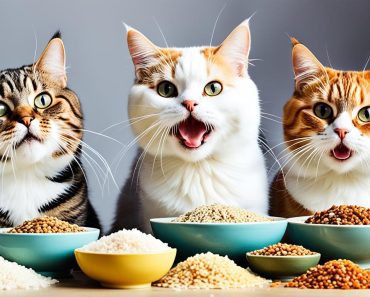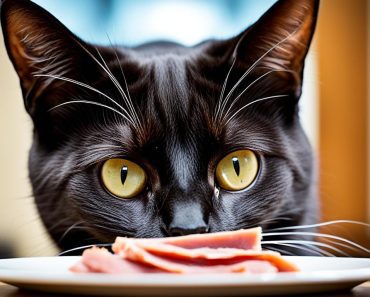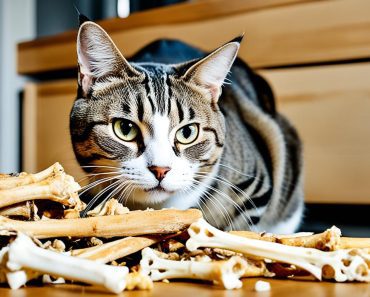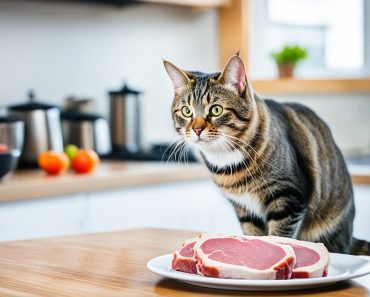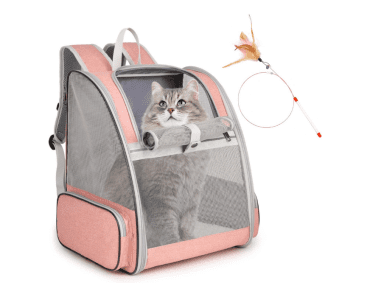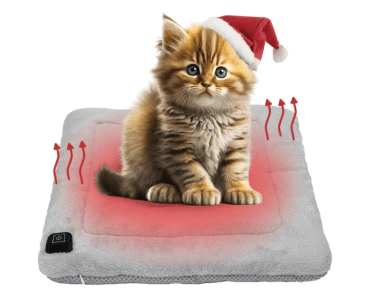As a cat owner, you may have wondered: can cats eat salmon? Is it safe for your feline friend to indulge in a delicious piece of salmon? Cats are known for their love of fish, and salmon is no exception. But before you start serving up salmon dinners for your kitty, it’s important to understand the facts about cats and salmon.
Cats can indeed eat salmon, but there are a few important things to keep in mind. While they may enjoy the taste, it’s essential to provide salmon in moderation and as part of a balanced diet. Feeding your cat too much salmon can lead to them becoming picky eaters and may result in nutritional imbalances.
Cooked salmon is safe for cats to consume, but it’s crucial to avoid feeding them raw salmon. Raw salmon carries the risk of parasites that could harm your feline friend’s health. Instead, cook the salmon thoroughly before offering it to your cat.
Salmon can be beneficial for cats when fed correctly. It provides various health benefits, including improving joint health, supporting cardiovascular function, promoting eye health, enhancing skin and coat quality, and even boosting cognitive function.
If you decide to treat your cat to a salmon snack, consider using salmon treats specifically formulated for cats. These treats are a fun way to offer your furry friend a special indulgence without compromising their dietary needs.
When feeding salmon to kittens, it’s essential to introduce it gradually into their diet. Consult with your veterinarian to ensure the proper feeding guidelines for your kitten’s age and size.
Can Cats Eat Salmon? Yes, indeed they can.
- Cats can eat salmon, but it should be given in moderation and cooked thoroughly.
- Raw salmon carries the risk of parasites and should be avoided.
- Salmon provides several health benefits for cats, including joint and cardiovascular health.
- Salmon treats formulated for cats can be a special indulgence.
- Consult with your veterinarian for specific dietary recommendations for your cat.
Do Cats Like Salmon?
Cats have a reputation for being infatuated with fish, and salmon is no exception. Although fish is not a natural part of a cat’s diet, cats are drawn to the strong aroma and taste of fish. The high protein content in fish, including salmon, appeals to cats as obligate carnivores. In fact, the taste and smell of salmon are so enticing to cats that they might come running into the kitchen whenever it’s being prepared.
Cats’ affinity for salmon stems from their innate preferences as carnivorous animals. The flavors and scents of fish trigger their natural instincts, making them eager to indulge in this delectable treat. So, it’s no surprise that cats are often captivated by the taste and aroma of salmon.
Health Benefits of Salmon for Cats
Salmon offers several important health benefits for cats. It contains omega-3 fatty acids that promote joint health and reduce inflammation in the body. The EPA and DHA in salmon support cardiovascular health by reducing triglyceride levels. Salmon is high in taurine, which is essential for eye health, and the DHA in salmon is important for the development of the eyes and optic nerves.
The omega-3 and omega-6 fatty acids in salmon improve skin and coat quality, reducing the risk of skin issues and keeping your cat’s fur shiny and healthy. Additionally, the vitamins and minerals found in salmon, such as B vitamins, potassium, selenium, and niacin, contribute to overall well-being and support your cat’s immune system.
Feeding your cat salmon as part of a balanced diet can help enhance their cognitive function and promote brain health. The omega-3 fatty acids in salmon play a crucial role in maintaining optimal cognitive function in cats.
It’s important to note that while salmon provides numerous health benefits for cats, it should be fed in moderation and prepared properly to avoid any potential risks or negative effects on your cat’s health.
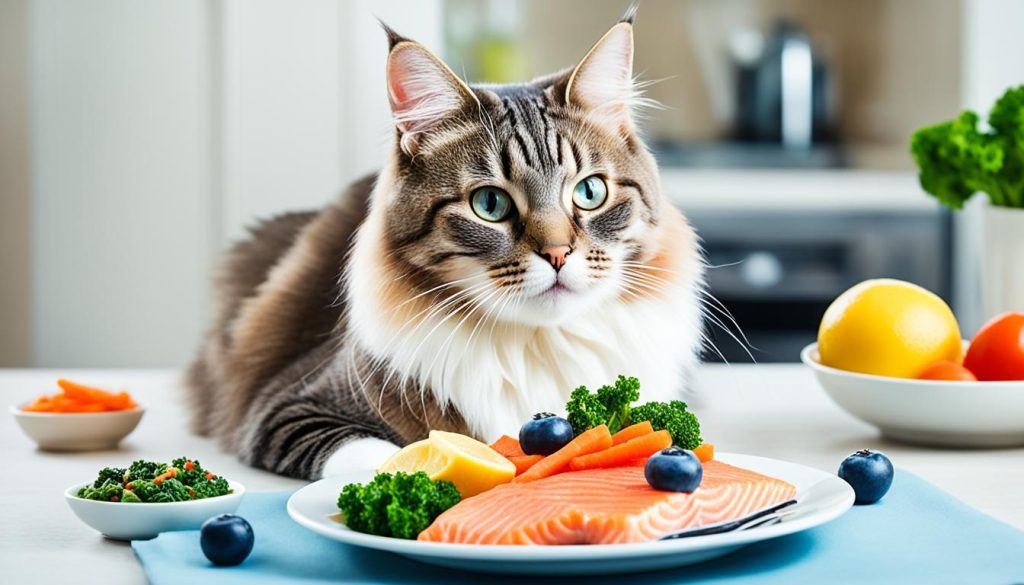
Overall, including salmon in your cat’s diet can be beneficial for their joint health, cardiovascular health, eye health, skin and coat quality, cognitive function, and general well-being. Just remember to consult with your veterinarian regarding the appropriate amount of salmon to feed your cat and how to incorporate it into their diet.
How to Safely Feed Salmon to Cats
When it comes to feeding salmon to your beloved feline friend, it’s crucial to follow best practices to ensure their safety and well-being. Here are some guidelines to help you navigate the process:
1. Cooked Salmon: A Safe Meal Option
Cooked salmon without any added seasonings is safe for cats to eat. The cooking process eliminates any potential bacteria or parasites that could be harmful to your furry companion. However, it’s essential to remove the bones, head, and fins before serving it to your cat to prevent choking hazards.
2. Skin on or off?
The skin of the salmon can be left on if it is cooked thoroughly. While some cats may enjoy the texture and taste of the skin, others may find it less appealing. It’s always a good idea to observe your cat’s preferences and ensure that the skin is cooked properly to avoid any gastrointestinal issues.
3. Canned Salmon: Choose the Right Option
If you opt for canned salmon, it’s crucial to select the right type. Make sure that the canned salmon is preserved in water and doesn’t contain any additives like salt or seasonings. This will ensure that your cat is not exposed to excessive levels of sodium or any potential harm from added ingredients.
4. Homemade Smoked Salmon: A Safer Alternative
If you’re considering feeding your cat smoked salmon, preparing it at home is the best way to ensure its safety. By making it yourself, you have control over the ingredients used and can avoid additives or excessive oils that may upset your cat’s stomach. Remember to keep the portion size small and feed it in moderation.
5. Removing Bones
Before serving salmon to your cat, it is crucial to diligently remove all bones, as they pose a significant choking hazard. Carefully inspect the meat for any hidden bones, which can be difficult to detect. Taking this extra precaution will help keep your cat safe and prevent any potential emergencies.
By following these best practices, you can safely incorporate salmon into your cat’s diet and provide them with a tasty and nutritious treat. Remember, always consult with your veterinarian for specific dietary recommendations based on your cat’s individual needs.
Can Cats Eat Raw Salmon?
Feeding raw salmon to cats is not recommended due to various risks associated with it. Raw salmon can cause stomach upset and digestive issues in cats, leading to discomfort and potential health problems. Moreover, raw salmon may contain harmful parasites and bacteria that can be detrimental to your cat’s well-being.
One of the main risks of feeding cats raw salmon is the potential presence of parasites. Salmon can harbor parasites such as tapeworms, flukes, and roundworms. These parasites can infect your cat’s digestive system and cause serious health issues. Additionally, raw salmon can also contain harmful bacteria like Salmonella and Listeria, which can lead to food poisoning and pose a threat to your cat’s health.
To ensure the safety of your cat, it is essential to always cook salmon thoroughly before feeding it to them. Cooking salmon eliminates the risk of parasites and bacteria, making it safer for your cat to consume. Proper cooking techniques, such as baking or steaming, can effectively kill parasites and bacteria present in the fish.
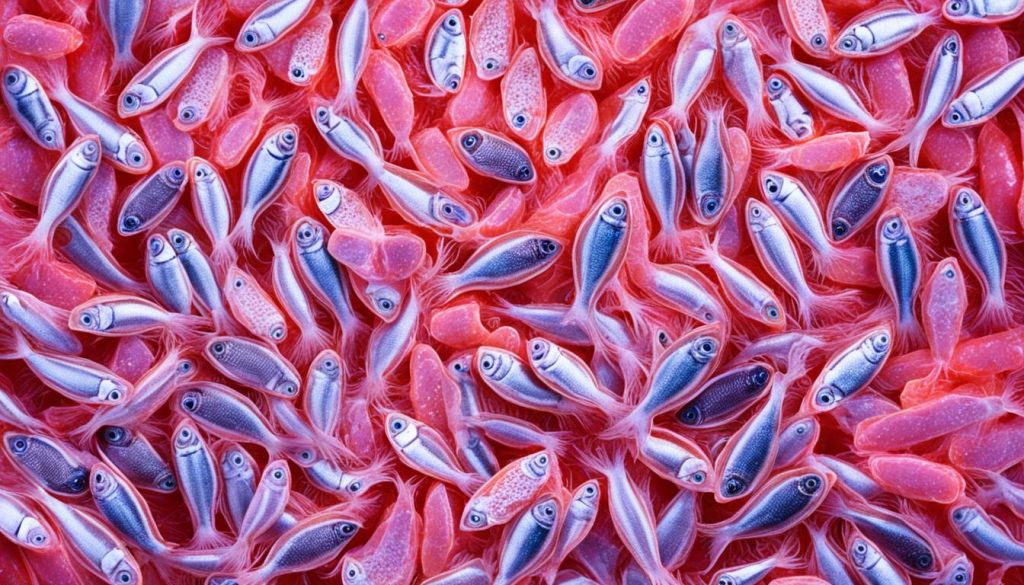
Can Cats Eat Salmon in a Can?
Cats can indeed eat canned salmon that is preserved in water. However, there are some important considerations to keep in mind when feeding your feline friend this type of salmon.
One risk associated with canned salmon is the salt content. Excessive salt can be toxic to cats, leading to a condition called salt poisoning. Symptoms of salt poisoning may include vomiting, diarrhea, lethargy, and excessive thirst. To prevent any harm, it is best to serve plain salmon to cats without any added seasonings or additional salt.
Can Cats Eat Smoked Salmon?
Cats can eat smoked salmon, but it’s important to understand the risks and considerations associated with this popular fish treat. While most cats enjoy the taste of smoked salmon, there are certain factors to be aware of to keep your furry friend safe and healthy.
One of the main concerns when feeding cats smoked salmon is the high sodium content. Smoked salmon can contain high levels of sodium, which can be harmful to cats if consumed in large quantities. Cats have delicate kidneys that can’t handle excessive amounts of sodium, leading to potential health issues.
In addition to high sodium levels, some smoked salmon products may also contain excessive oils or additives that can be harmful to the digestive system of cats. These additives can lead to gastrointestinal upset, including vomiting and diarrhea, which can be uncomfortable and distressing for your cat.
To mitigate these risks, it is essential to check the nutrition label when choosing smoked salmon for your cat. Opt for smoked salmon with lower sodium levels and fewer additives. Alternatively, you can consider making homemade smoked salmon for your cat, as this allows you to have greater control over the ingredients and the smoking process.
When offering smoked salmon to your cat, remember to do so in moderation. Treat it as an occasional treat and not a regular part of their diet. It’s important to maintain a balanced and nutritionally complete diet for your cat, and smoked salmon should not replace their regular cat food.
While cats can eat smoked salmon, it’s crucial to be mindful of the risks associated with it. Check the sodium content and choose smoked salmon with lower levels. Consider homemade options for greater control over the ingredients. And always remember to feed smoked salmon in moderation, ensuring it remains a special treat rather than a staple in your cat’s diet.
Conclusion
Cats can safely eat salmon as a part of their diet, but it should be offered in moderation and prepared correctly. Cooked salmon provides numerous health benefits for cats, including promoting joint health, cardiovascular health, eye health, and improving the quality of their skin and coat. Additionally, the omega-3 fatty acids found in salmon are beneficial for cats’ cognitive function. However, it is crucial to follow best practices when feeding salmon to cats and avoid feeding them raw salmon due to the risks of parasites and bacteria.
While cats can enjoy smoked salmon as an occasional treat, it is important to check the sodium content and avoid excessive additives. Always remember to serve plain salmon to cats without added seasonings or excessive salt. It is also recommended to consult with a veterinarian to determine the specific dietary needs and portions for your cat.
Cats can enjoy the health benefits of cooked salmon when prepared and served correctly. Incorporating salmon into your cat’s diet can be a nutritious addition, but it should not replace their balanced meals. Remember to provide salmon in moderation, follow best practices, and prioritize your cat’s overall well-being.

